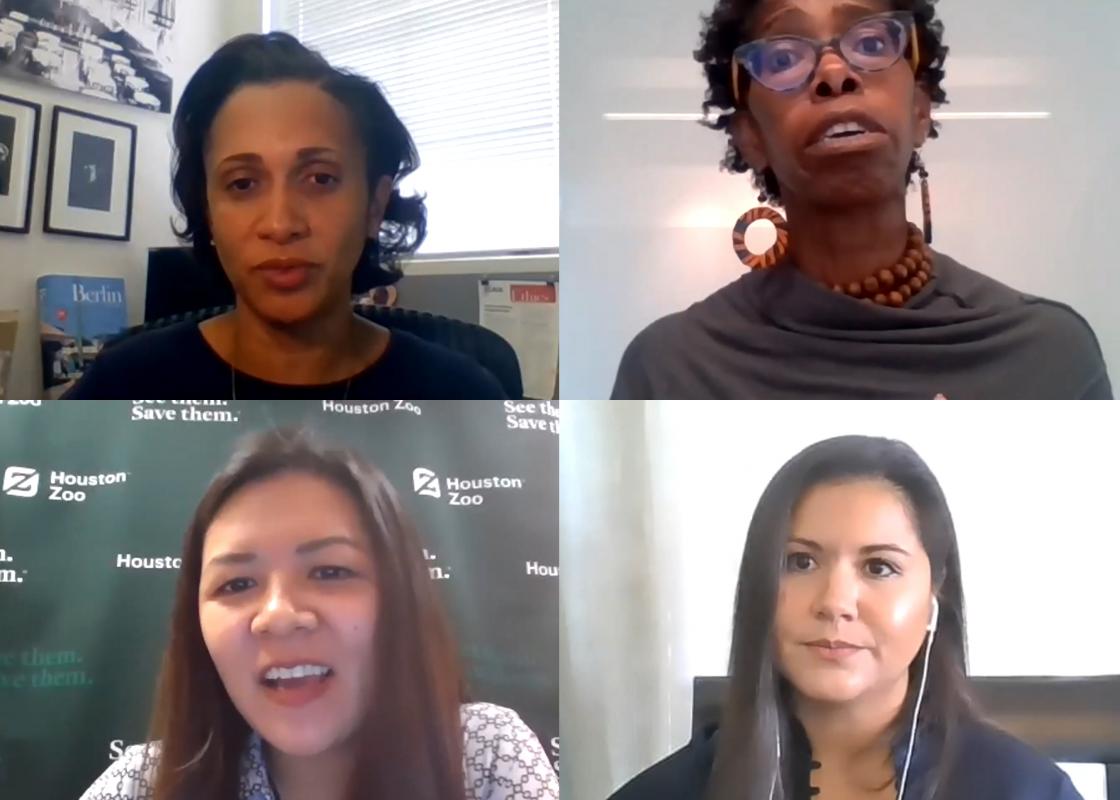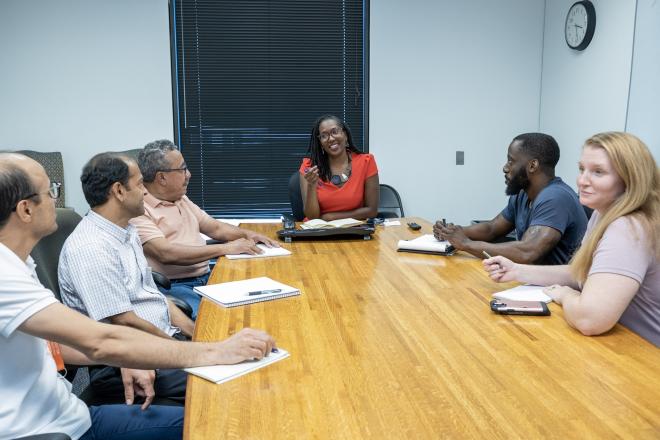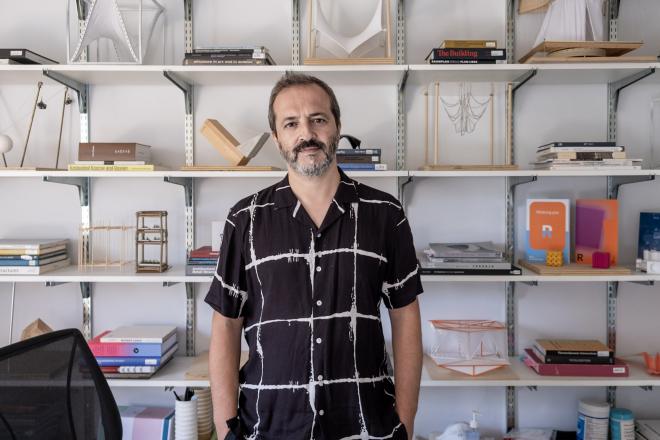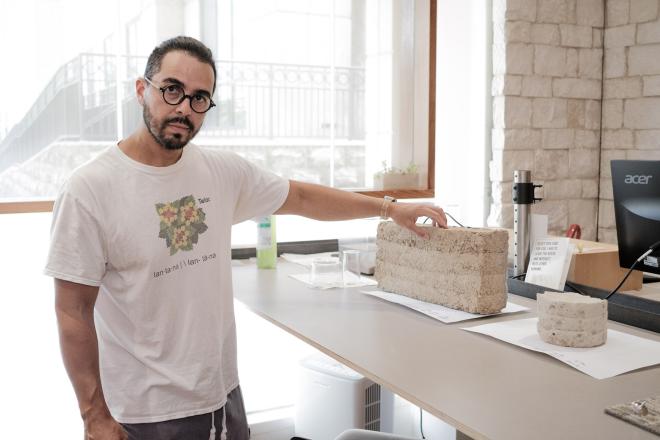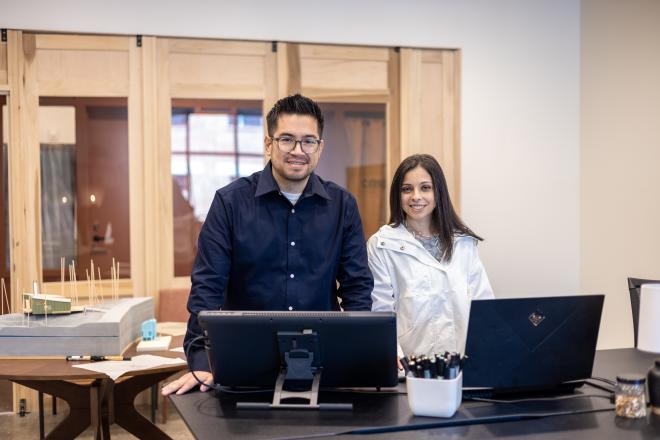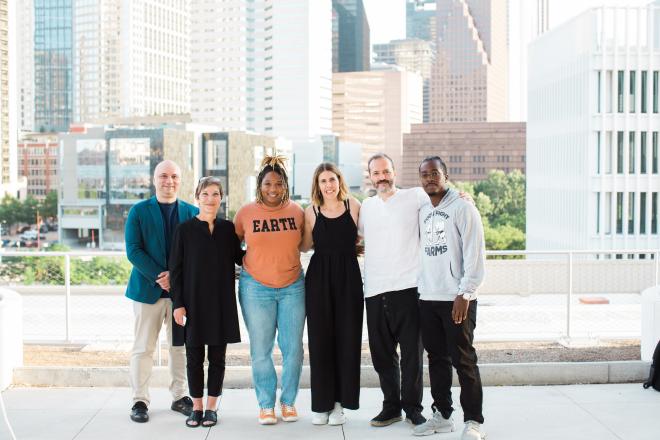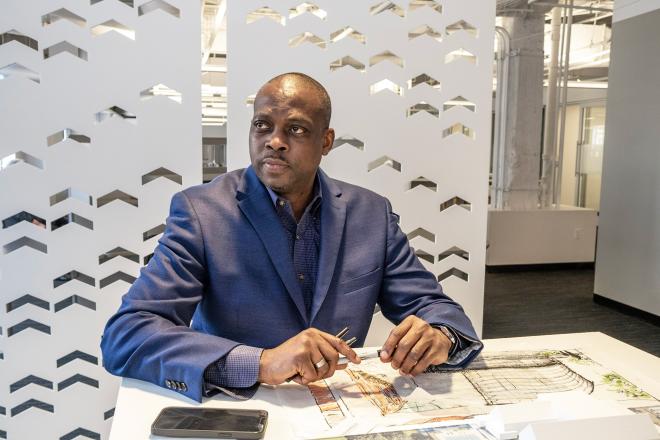On September 2, Anzilla Gilmore, Assistant Director for Project Management and Engineering, Rice University, presented the Noon Talk “Architecture: It is what it is, but it does not have to be” as part of the Rice Architecture Fall 2020 Lecture Series. She was joined by Nicola Springer, Executive Vice President and Director of pK-12 Projects, Kirksey Architecture; Florence Tang, Project Manager, Design and Engineering, Houston Zoo; and Laura Vargas, Project Director, EYP Architecture & Engineering. Springer and Tang serve on RDA’s 2020-2021 Board of Directors.
These architects are great because of the work they do and the leadership they provide in our Houston architecture community. Together, the panel discussed the racial reckoning that architecture must have in order to address the culture of discrimination it regularly perpetuates. They also reviewed personal experiences and strategies that can be used to advance the profession. The conversation was a refreshing event, as viewers witnessed a group of architects in honest and vulnerable conversation instead of a single expert figure presenting for a full hour.
Watch the video here.
The panelists took questions during the event but, as is common with Zoom presentations, there were more questions than could be answered live. Afterwards, the panelists took the time to respond to many of the questions that were asked. Their answers are shared below.
How much of the (under-) representation of people of color in the profession is related to the pipeline of people of color being interested in and pursuing the profession and moving from school to work? How much of it relates to what you experience, once there, professionally, socially, culturally, financially? Does architecture compensate in a way that makes it appealing as a profession versus engineering, business, or other areas where people of color have found success in compensation and lifestyle?
Perhaps this may be naïve, but I am in architecture because I love it. Looking at some salary charts for the construction engineering fields, the pay seems commensurate. In Houston we probably have a warped view of pay in the engineering fields here because of the oil and gas industry. They do offer prime rates of employment and this is hard to beat, especially when you’re starting out.
That said, what architecture offers is a creative outlet that may not be visible to young people. If we can reach students at a younger age and they can take classes and have experiences that are transformative, then the reality of architecture as a profession will be more accessible. I understand that the cost of studying architecture includes the fact that we have to spend more time in school than the typical engineer, and that this is also another factor in deterring students from studying architecture. I believe that work needs to be done to make the education more affordable. Once out of school, the ARE process has been sped up recently, but it is still extensive and expensive.
At the end of the day I think architecture earns the respect of the community culturally, socially, and professionally, and if there is a chance that you are doing what you love, then I hope that may make up for some of the difference in pay. This document is five years old, but it shows that at the highest levels of experience, similar compensation to other fields can be achieved, but it also shows that there are more tiers in architecture, which means it takes longer to attain these higher salaries.
College is often a gateway to a better life for many people and especially for BIPOC individuals, myself included. Architecture is often seen as a profession that is exclusive and perhaps not as lucrative for those who seek to support themselves and others through the catalyst of higher education.
Architecture is pretty good at not educating their students about pay scales in the profession. I don't think architecture is seen as exclusive to people outside of the profession, mostly because I don't think the general population even knows what an architect does. I think it is architects themselves who sell this idea of exclusivity, and bad business acumen on the part of architects is what makes architecture less lucrative.
How do you address questions around professionalism when it comes to international students? Would you consider a question such as “Do you intend to go back?” as a microaggression?
I thought about this question after the talk and I want to expand on my answer. I don't remember being asked this question when I started working, and I do not think I have asked this question of anyone that I have interviewed or participated in a career fair. Is asking this question a micro-aggression? It is if you take it as one. I can understand how this question will be unsettling as in some cases you really don't know what you are going to do, and half the time going back hinges on whether you get a job offer or not. Like any other interview you should prepare your response for this question so that you don't feel caught off guard if it is asked. The rest of my response still stands. It’s important to understand why the question might be asked, as the company is making an investment in you over time.
How do we help each other out? How do we not discriminate against our own because they “don't speak English well" or because they don't have the same education as all of us?
Be kind, patient, and respectful. If it takes a few moments for someone to formulate the right words in English, know that they are likely taking care to say something the "right way." Take a moment to let that person gather their thoughts and say what they need to and resist the urge to "correct" their English or re-state what they said. And please be aware of unconscious facial expressions that imply confusion. If you understand enough to decipher what they are trying to say, there is no need to question it. Questioning and/or correcting the way someone says something can come off as degrading and disrespectful. Let the person speak and respond when they are finished speaking. Treat them with the same respect as anyone else and reinforce his/her knowledge by not questioning the way they are saying something. Always remember that a person who struggles with English as a second language is often fluent in two or more languages, as opposed to most people who only speaks English. That is a trait which should be commended, not degraded.
Architecture firms and owners are sometimes working with clients, contractors, and others who are being racist. How have you seen leadership handle that, and what responsibility do they have?
I had an experience years ago where a consultant made a comment regarding my gender. The owner stepped in and sternly reminded that consultant why I was there, why he trusted me, and reinforced my competence. Later, the owner privately told me that if the consultant ever made a comment that made me uncomfortable, he would see to it that this consultant would never work with them again. I never forgot that moment and will always remember that owner for being a person of integrity. Leaders and those in powerful positions have strong voices. They have the ability to correct a situation and stand up for those whose voices may not be as strong. When it comes to employees, leaders must remember that their employees are their most valuable asset. It's in their best interest to stand by them, especially in circumstances like these.
What advice would you offer to someone who has experienced a level of discrimination at their current firm? What level of involvement should one offer to the firm in order to remain with the firm?
If an HR department exists at your firm, document the experience, especially if it is a repeated offense by the same person. If no HR department exists, speak to whomever you trust in a leadership position. It is entirely acceptable to stand up for yourself. Try not to be intimidated or pressured to "keep quiet." If nothing comes of your request for help, it’s your choice on whether to stay or leave. Leaving isn't always an option for a number of reasons. However, in any decision you make, make sure you are making that choice for yourself and no one else. Do what you believe is best for you.
Are these conversations about DEI (Diversity, Equity, and Inclusion) making a difference in your experience? What changes are you seeing in your respective workplaces, even in these past few months?
I am seeing people start to have the hard, uncomfortable conversations. And that is the first step. It is up to us to not let the conversation stop. I have seen many firms add diversity officers to their teams. It will be up to those people that take on those roles to continue to do the work that needs to be done to increase and create meaningful diversity.
What's the business case for DEI?
The more diverse your client base becomes, the more diverse the profession needs to be. If I am a black woman with a million dollars to spend in fees, you better believe I want to see someone that looks like me on the team I will be hiring.
How do you all suggest we promote engagement in conversations regarding DEI in schools and firms when many shy away from the topic by insisting the subject is political?
We all too often allow ourselves to be hurt by not communicating about things that are believed to be taboo. We don't discuss religion, politics, or salary. By not discussing these things, we have agreed to stay ignorant about what other people think, what makes them who they are, and most importantly, whether or not we are being treated fairly. In this time of encouraging communication, we could endeavor to set aside specific time to have open conversations. We need to be able to listen to each other. I think listening to each other may be the greatest hurdle.
I am curious how the panelists feel about the potential of existing professional organizations and institutions (like the AIA and NCARB) to address these issues. Shouldn't we abandon them and build new institutions? Wouldn't that be more productive?
Existing professional organizations are not in such a state that they should be abandoned. They have structures in place that have permeate through all areas of the profession. These organizations have been effective in changing perspectives on sustainability and gender. That structure can be used to infiltrate firms and schools or architecture to support diversity in the same ways.
At my preceptorship office, it was often noted that while there plenty of fathers, there had never been any mothers at the firm. This could be attributed to the lack of family support that the firm provides and the lack of women at the firm. While not all women wish to have children, this could definitely be a barrier of entry for women in the profession. I have heard many stories since I have started of women who would leave the profession after choosing to have a family. How can the industry remedy this?
This is prevalent in women earlier in their careers, as one’s “formative” career years directly overlap with prime childbearing years. Firms should take special care to not hold a woman back out of fear that she will eventually leave upon becoming a mother and must communicate this to them. Flexible schedules can help support the needs of parents, men and women alike. Allowing parents to attend school functions, drop off/pick up kids from school, leave early for sports practice, etc., and to be able to do so without fear of judgement or guilt, can empower a parent to continue along his or her career path.
Tang: The architecture profession has much ground to cover in this area. Some larger firms offer maternity/paternity leave, flexible hours, telecommuting, and rooms for nursing moms. They see the value of diverse project teams and offer that kind of balance. It's the smaller firms with fewer than ten people that are not legally bound to offer health benefits or maternity/paternity leave or other work/life flexibilities that struggle. I have heard far too many tales of egregious and unethical behavior from offices like this. It can be very difficult to justify the childcare costs when you are starting your career and starting your family. It is not just an industry problem but a gender equity issue in society, so there are national healthcare and early childhood education issues that need to be mitigated.
I have so many talented friends who made it through school and started practice but then pivoted away for these very reasons. This attrition is a travesty and part of the reason why the path to leadership should be widened and those in leadership positions now need to remove some of these barriers. Why is it when a stellar male architect who tells his boss he will be a father will get a raise and a promotion, but an exceptional female architect who will be a new mother won't get that same recognition? We have breadwinners of all shapes and sizes and our profession needs to celebrate this. Building community within the firm and profession by connecting with other parents is another lifeline to success.
Alongside hiring and promoting a more diverse faculty, do you see any shorter-term actions that could be taken by an architecture school to recruit a more diverse student body?
Outreach and recruitment at underprivileged and minority high schools is one place to start. Exposing students as early as possible to the idea of becoming an architect—planting the seed—can help foster a more diverse student body.
Can you share some thoughts about the pedagogy of architecture school? Some of the moments I've felt the smallest and most aware of my status as a person of color are when I stand in front of an all-white jury and watch their faces as I speak.
Gilmore: It has been my experience as a student in schools of architecture that student comfort or a sense of belonging is not a part of the pedagogy. Architecture schools seem to pride themselves in weeding students out of the programs. I suspect the thinking there is related to appearing to be rigorous. But I think there is a huge difference between being rigorous and being exclusive and elitist.
Tang: It is most definitely intimidating to walk into any space and recognize you are an only. I have recognized that about many of the spaces I traverse. In this situation makes you completely aware this remains an issue to be corrected. Professors at all levels should be cognizant of the jurors they are inviting to the school and recognize that the jury for final reviews should be as diverse as the student body. I once sat on a review for students at UH and it was my goal to not criticize the work in a demeaning way, but to offer constructive criticism about the project to elevate it to the next level. I could tell most students were nervous, had not slept, and some were not native English speakers. We can only see things through our lenses and our own experiences. One of my goals is to make our profession stronger, and we can only do that by passing the torch to the next generation through building them up.
How do we use this shift in communal consciousness to create long term change in the industry?
We need to continue to communicate and demand change whenever possible. We cannot stand idly by and let things stay the same. We cannot get tired and we cannot rest until the issue is addressed. Architecture has made great strides in addressing gender inequality in the profession; the same can be done with diversity. But we cannot stop until it is done.
Thank you all for sharing your experiences and supporting our students and younger professionals!
Happy to share. We hope that there are other opportunities to talk more about these issues until they are no longer issues.


